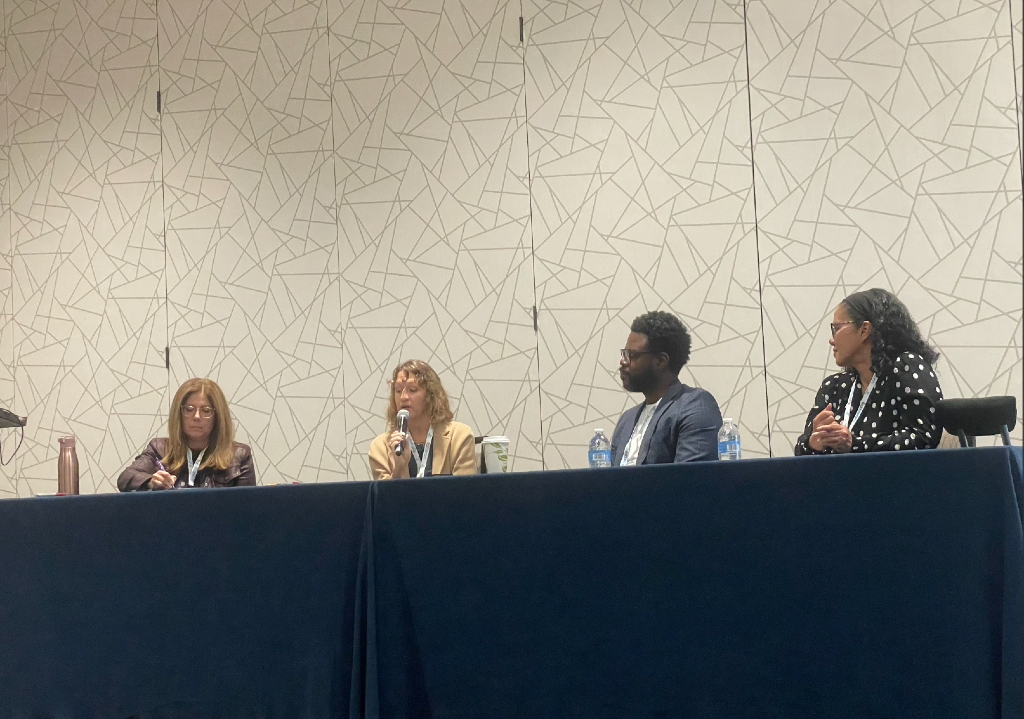Digital Equity Executives Advise on Closing Digital Divide
Executives said that infrastructure expansion was not enough

Executives said that infrastructure expansion was not enough

ARLINGTON, Va., Oct. 3, 2024 - Digital equity leaders met on Thursday for a panel discussion on Digital Equity Act grant programs. The group argued that infrastructure advancements alone were insufficient to close America’s digital divide.
The panel discussed digital equity in the contexts of digital literacy and education.
Angela Bennett, Digital Equity Director at the National Telecommunications and Information Administration, asserted that state broadband offices must work with communities closely while building out infrastructure.
Megan Janicki, Deputy Director of Public Policy and Advocacy at the American Library Association, agreed.
The officials were speaking at the annual AnchorNets conference (Oct. 2-4) in Arlington, Va., hosted by the Schools Health & Libraries Broadband Coalition. The panel’s moderator was D’Andre Weaver, Chief Digital Equity Officer at Digital Promise.
Janicki noted during the discussion that libraries were important anchor institutions where unconnected individuals could learn the digital literacy required to engage with expanded broadband infrastructure.
Bennett, along with Angela Siefer, Executive Director at the National Digital Inclusion Alliance, specifically noted the importance of digital literacy to equity in education.
Bennett argued for municipalities to move away from a transaction-specific mindset that considered the number of devices available or internet speeds and toward the question of how to increase the ability for people to use the technology.
“As a result of teachers not having the [digital literacy] skills, we lost a generation of students during COVID,” said Bennett.

Satellite companies want easier access, while carriers say that could upend licenses they purchased.

The agency tapped Tricia J. Paoletta and Matthew Plaster as senior advisors

The fire chiefs voiced strong support in May 2025 for NextNav’s new technology, before shifting gears just last month.

Array is still looking to sell its C-band holdings.
Member discussion